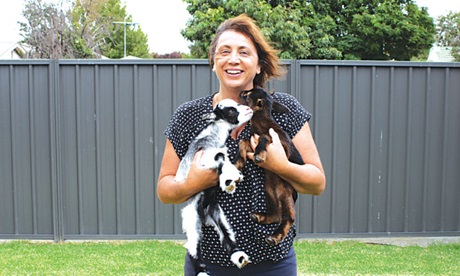Pet Power, a Catholic programme, prescribes a few pats a day to help manage stress, anxiety, depression and feelings of loneliness and social isolation.
Centacare Catholic Family Services says that having a pet or interacting with someone else’s animals is proven to help people in many ways.
That insight is demonstrated over and over again at Centacare’s “Animal Wellbeing” programme.
Staff say they have also been shown to be effective in supporting young people in improving their learning outcomes.
Pets can contribute positively to a person’s behavioural, emotional and verbal distress, and assist them in building self-awareness and self-regulation skills.
Centrecare’s South Australia-wide programme is now in its fourth year.
It offers wellbeing support to improve the engagement of people with complex needs in educational, disability, or community-based settings.
It also offers sessions for organisations and corporations to improve staff wellbeing, self-care, emotional regulation, reduce worker burnout and develop team culture.
The pet effect
Clients can benefit by the increased awareness of the importance of calm communication, positive body language and gentle handling, staff say.
They point to the effect Liz Sparks (pictured) – who hosts the Animal Wellbeing programme – and her entourage of animals have on clients when they arrive.
The room lights up with smiles.
The programme is hugely beneficial, she says.
“It has a huge impact on kids, especially the kids people think are violent and aggressive. It’s a huge thing for adults to see them showing empathy, kindness and love towards something.”
But her animals don’t constitute a ‘petting’ zoo, she emphasises.
Among her animal helpers are Alfie the gentle Border Collie, Bear the Aussie Shepherd (Centacare’s wellbeing dog) and a variety of others.
Sometimes the pets she brings in include joeys, guinea pigs, lizards, a lamb and a cheeky Chihuahua called Chachi.
Sparks offers participants with opportunities to interact with animals safely.
“If you can show empathy and be loving and nurturing to a little animal, how does that not translate through to people? It’s about building on those skills.”
Centacare Wellbeing Support Services manager Jessica Hickey says Bear has an incredible ability to respond in different ways to the many situations and people he comes into contact with.
“When Bear is with very young children and people with disabilities, he is calm and gentle but when with older students, he loves to play sports” she says.
Other animals can meet different needs, she says.
“Students who are unable to sit still or concentrate are seen sitting quietly, gently patting or feeding a joey. Students who display aggression and anger with the world stay still and cautious while handling a stick insect.”
Super-sensitive Alfie is a particularly well-natured match with babies and young people with a disability.
News of the programme’s benefits is spreading.
Sparks makes regular visits to about eight schools during the school term. She also facilitates sessions during the school holidays with different programmes and organisations.
Source
Additional reading
News category: World.




